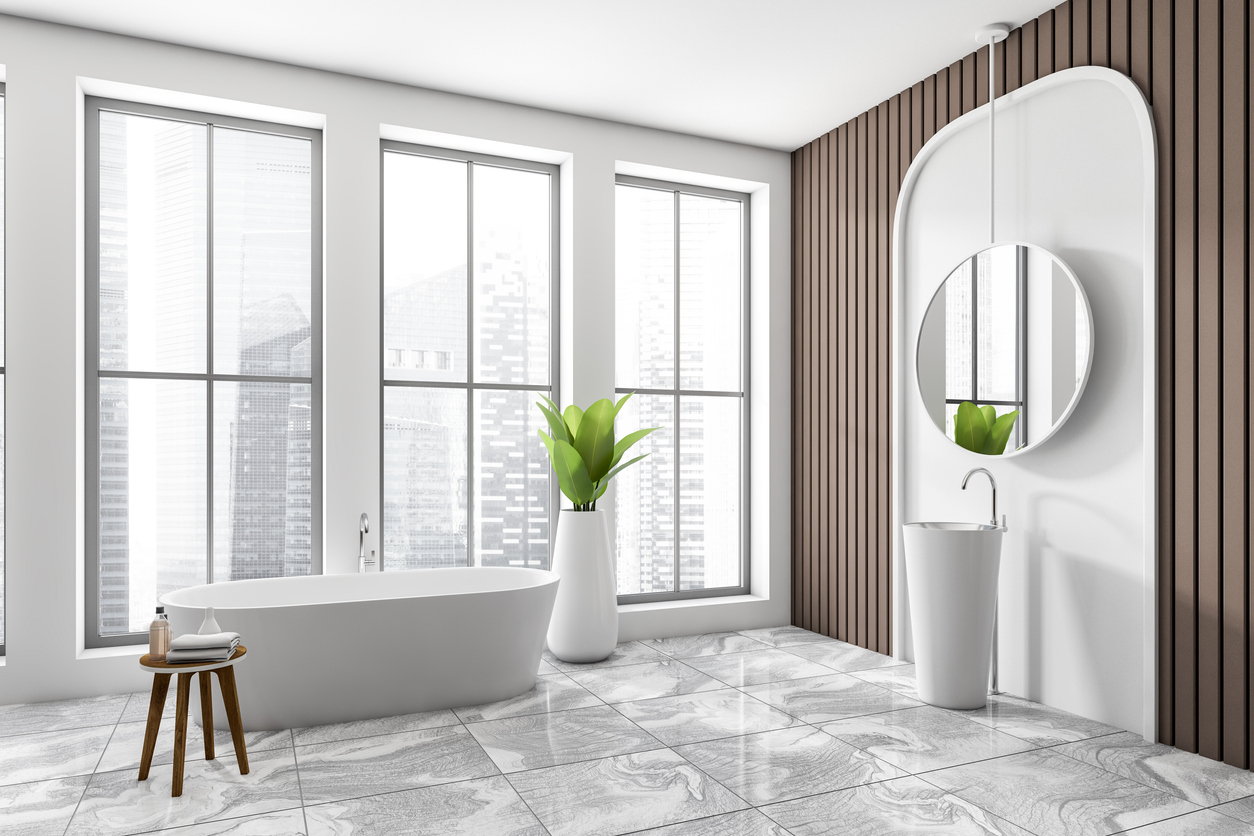
Deep Bathtubs Buying Guide 2025 -Photos & Examples
Deep bathtubs are designed for full-body immersion, offering greater depth and a more luxurious soaking experience than standard tubs. Perfect
The bathroom is a water-heavy space in which steam and water are constantly present. This means that choosing a bathroom floor that not only feels and looks nice, but also functions well in the worst conditions, is essential.
Important considerations when selecting flooring for your bathroom are its ability to withstand wetness and humidity, its ease of cleaning, and its non-slip properties when damp. In addition to being safe and comfortable to walk on, your bathroom floor should suit the rest of your bathroom and, of course, your preferences.
There are many bathroom flooring options available for your home. But which is the right one for you? Today we will look at popular bathroom floor materials, discuss their pros and cons and see which one is right for you.
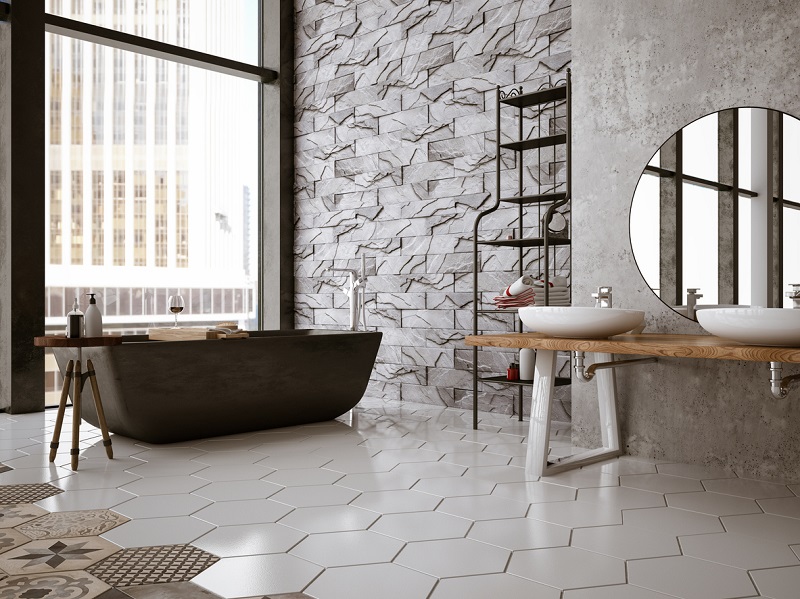
If you want to compare prices and other relevant factors that can help you make the right choice, take a look at the best bathroom flooring overview below.
| Durability | DIY friendly | Cost | |
| Porcelain tile | Excellent | No | $$ |
| Ceramic tile | Excellent | No | $$ |
| Vinyl | Excellent | Yes | $$ |
| Concrete | Excellent | Yes | $$ |
| Stone | Excellent | Yes | $$$ |
| Bamboo | Good | Yes | $$$ |
| Engineered wood | Good | Yes | $$$ |
| Laminate | Good | Yes | $$ |
| Cork | Low | Yes | $$ |
Porcelain tile is made by exposing clay to high temperatures until it hardens, resulting in a stronger tile than ceramic and fairly durable. As a result, porcelain has many design options, is durable, water/stain resistant, and low maintenance.
It also absorbs little moisture, is easy to maintain, inexpensive to repair, and is an excellent material for those that want great aesthetics with minimal effort. On the other hand, Porcelain has a high material cost, is heavy, brittle, slippery, and is difficult to install compared to other materials.
| Pros | Cons |
| Durability | High cost material |
| Water/stain resistant | Heavy |
| Low maintenance | Slippery |
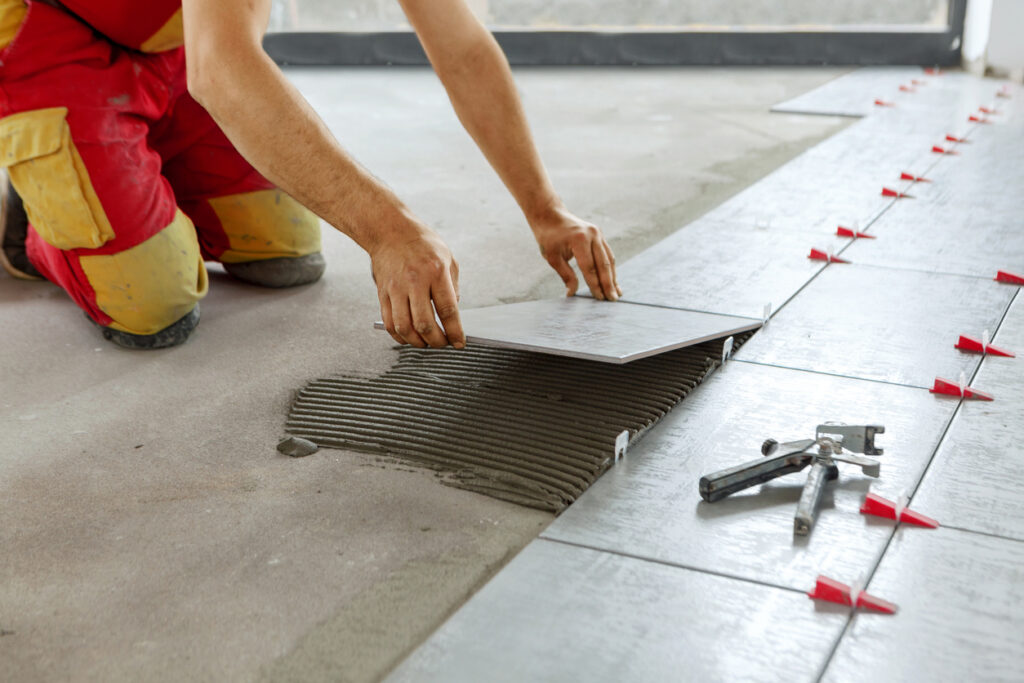
Ceramic tiles are made using a kiln to heat clay until it hardens, making ceramic tiles softer and less dense than porcelain. The clay used is less refined, resulting in a more porous and less durable material than porcelain, providing a more affordable price tag. Ceramic tile, when glazed, is water/stain resistant has a large variety of style options, is durable, and is low maintenance.
Conversely, Ceramic tile needs to be sealed and glazed before use; otherwise, the material will absorb water and will require replacing. In addition, the tile can get quite cold, making it uncomfortable to walk on with bare feet, is time-consuming to install with the grout issue, and is quite heavy.
| Pros | Cons |
| Water/stain resistant | Medium durability |
| Affordable | Heavy |
| Design versatility | Complicated to install |
Vinyl flooring is a multi-layered synthetic flooring made from plastic, fiberglass, and PVC materials. This material comes in the form of planks, tiles, or sheets that line your floor. A core layer of material comprises the primary material of the flooring with an image or material layer above it that can mimic a wide variety of looks and materials such as wood or ceramic. This top layer also protects the sublayers from any superficial damage as well as water or stains. As a result, vinyl flooring is water-resistant, has great durability, and can survive heavy wear and tear.
The material is comfortable to walk on and has a padded feel with multi-layers underneath, which has soundproofing qualities. The material is affordable and has a straightforward installation. Contrarily, vinyl flooring cannot be refinished, as the floor must be replaced. It has little resale value and is not environmentally friendly as toxic chemicals are used during manufacturing.
| Pros | Cons |
| Water/stain resistant | No refinishment option |
| Great durability | Not environmentally friendly |
| Affordable |

Stained concrete is a concrete slab that is colored on the surface. The result is an environmentally friendly material, low maintenance, and near-limitless design flexibility and versatility. Since the process is fairly straightforward, stained concrete can be imprinted with a wide range of different color hues to create a custom color for your floor. In addition to the stylistic flair, it is a low-maintenance material that can weather stains, spills, dirt, and hard impacts.
Concrete flooring can be equipped with radiant floor heating, allowing for heated floors. For negatives, concrete floors are very hard, which some may find very uncomfortable, especially for those with small children or the elderly. In addition, concrete flooring is highly susceptible to moisture, requiring a seal to prevent any long-term water damage. Lastly, the material can develop cracks over time as the entire material will constantly adjust with temperature shifts and the material is difficult to install.
| Pros | Cons |
| Environmentally friendly material | Hard and uncomfortable material |
| Low maintenance | Prone to cracks over time |
| Near-limitless design flexibility | Difficult to install |
Natural stone flooring uses natural stones such as marble, granite, and limestone to cut directly into tile. This style alone is incredibly popular because of its natural beauty, high durability, and high resale value to your home. Stone tile has excellent heat retention and is easy to maintain, replace, and repair. The material is also highly water-resistant, making it ideal for the bathroom. However, getting high-quality material, the cost is not cheap.
Natural stone ranks among the most expensive floor materials, with a time-consuming installation time. The material is also prone to wear and tear, such as chipping, staining, or cracking. This flooring can eventually break down if natural stone isn’t properly maintained.
| Pros | Cons |
| High durability | Expensive |
| High resale value | Time-consuming installation |
| Water-resistant | Prone to cracks |
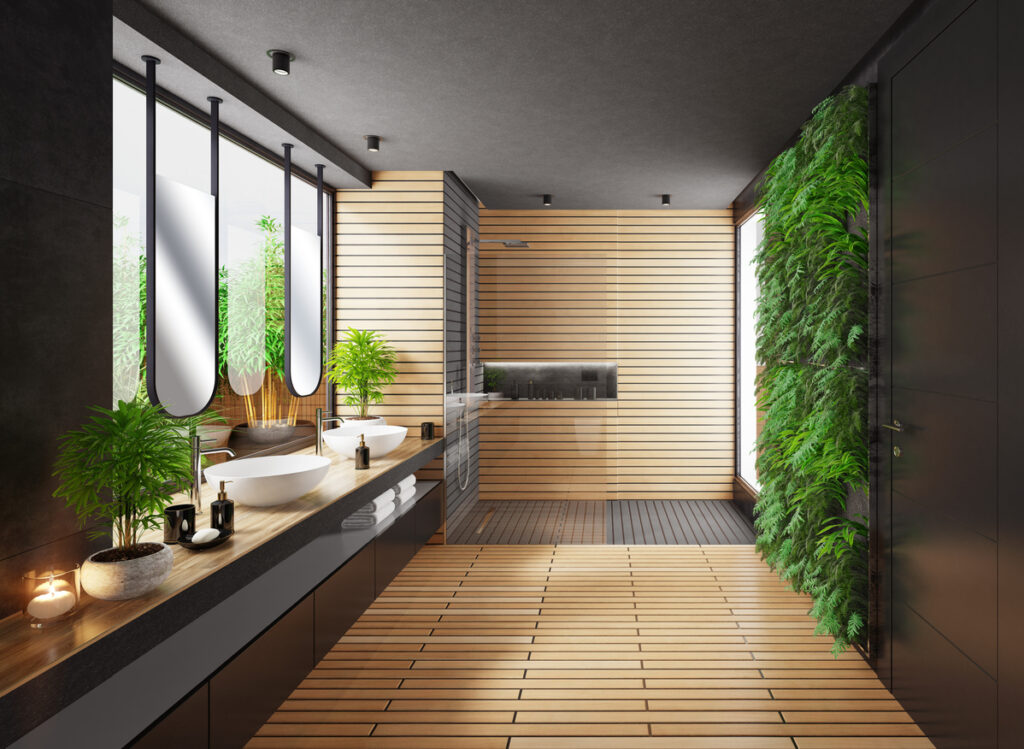
Bamboo floor is made by using bamboo stalks to construct planks and flooring. Like most hardwoods, bamboo is highly resistant to moisture, and the material behaves like wood flooring, allowing it to be refinished and maintained in the same way. Bamboo is a renewable material that is very environmentally friendly, easy to maintain/clean, can be refinished, and adds to resale value. Contrarily, bamboo flooring can be easily scratched, is not incredibly durable, and is very susceptible to temperature spikes which can cause cracks or material to break down.
| Pros | Cons |
| Environmentally friendly material | Prone to scratches |
| Easy to maintain and clean | Medium durability |
| Refinish options | Susceptible to temperature spikes |
Engineered wood flooring is a material that is nearly identical to hardwood. Still, instead of a single wood plank, it’s constructed from a plywood core with a thin layer of hardwood flooring on top with multiple layers below that are mixed and glued together. This construction provides the look and feel of hardwood but at a much more affordable price. Since it looks like wood, engineered wood offers a stylish rustic feel that can increase your home’s resale value. The material is also temperature resistant and moisture resistant.
On the negative, engineered wood will require heavy maintenance to keep up its appearance. The material is also relatively weak, so you need to find a verified manufacturer that won’t provide you with low-quality material. Prolonged exposure to the sun will also cause the material to fade, so it’s important to add curtains and blinds to your window.
| Pros | Cons |
| Affordable price | Heavy maintenance |
| Temperature/moisture resistant | Weak material |
| Prone to fading due |
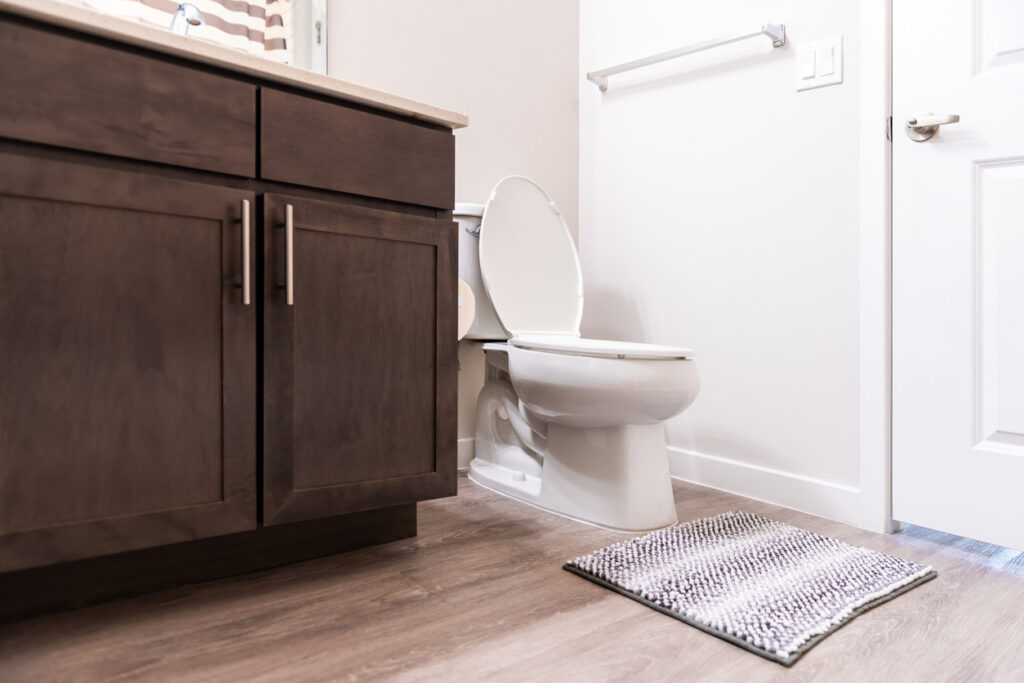
Laminate flooring comprises a multi-layer flooring product that is fused with lamination. The layers include a dense core of plywood or high-density fiberboard. This layer is followed up with a photo-realistic image layer to mimic any material such as wood or stone. The last layer provides a protective layer for the entire material.
Due to the construction method, laminate flooring is highly affordable and easy to install. Since it is meant to mimic other materials, it is also aesthetically attractive with simple maintenance. The drawback to laminate flooring is that it cannot be refinished, requiring wholesale material replacement. It is not moisture-proof, leading to long-term rot and deterioration if not properly maintained.
| Pros | Cons |
| Easy to install | Cannot be refinished |
| Affordable | Not moisture-proof |
Cork flooring is made by using tree bark that is ground up, compressed, and formed into sheets that are bonded with resin. The material is biodegradable, and many times, cork flooring is made by using recycled cork flooring, which makes it very eco-friendly.
Cork flooring is insulating, which can lower heating bills as the material can absorb heat and act as soundproofing. However, cork flooring is not as durable as other flooring and cannot sustain heavy impacts well, and may swell with excessive moisture.
| Pros | Cons |
| Eco friendly material | Average durability |
| Heat retention | Prone to swelling |
| Soundproof |
There are a few floor types that you should avoid for your bathroom simply because the excessive moisture and humidity will cause long-term damage. Here are the primary candidates you should avoid:
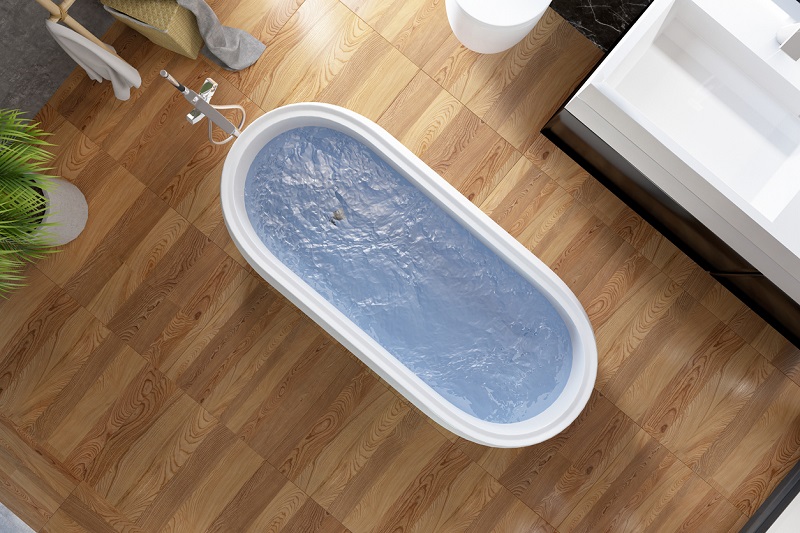
Carpet flooring is a flooring type that is made from woven fiber that comes in a variety of styles, patterns, and colors. The carpeting absorbs sound, creates a non-slip surface, and adds additional warmth to a home. Although there are many benefits to a carpeted floor, long-term exposure to moisture and humidity will create mold. The carpet needs to be consistently dried and cleaned to prevent this, which is just not practical in the case of a bathroom floor.
Solid wood flooring is made by using planks of wood to create flooring. Similar to engineered wood, solid wood offers great aesthetic beauty. However, when exposed to moisture, wood will eventually deteriorate and rot, especially with the bathroom’s high humidity. This isn’t an issue with engineered wood as it’s cost-effective to replace, but solid wood is costly to install and replace, making it less than ideal for the bathroom.
Here are the key things you should keep in mind when shopping for new flooring for your home:
With so many bathroom floor options available, choosing the right fit for your home is quite easy. So remember to do your research and balance cost and comfort to find the right floor for your bathroom.

Eric is the founder and president of Badeloft USA. He has been the president of Badeloft’s US division for over ten years and oversees all marketing and branding aspects of Badeloftusa.com.
His expertise lies in small business development, sales, and home and bathroom industry trends and information.
Contact us with any business related inquiries.
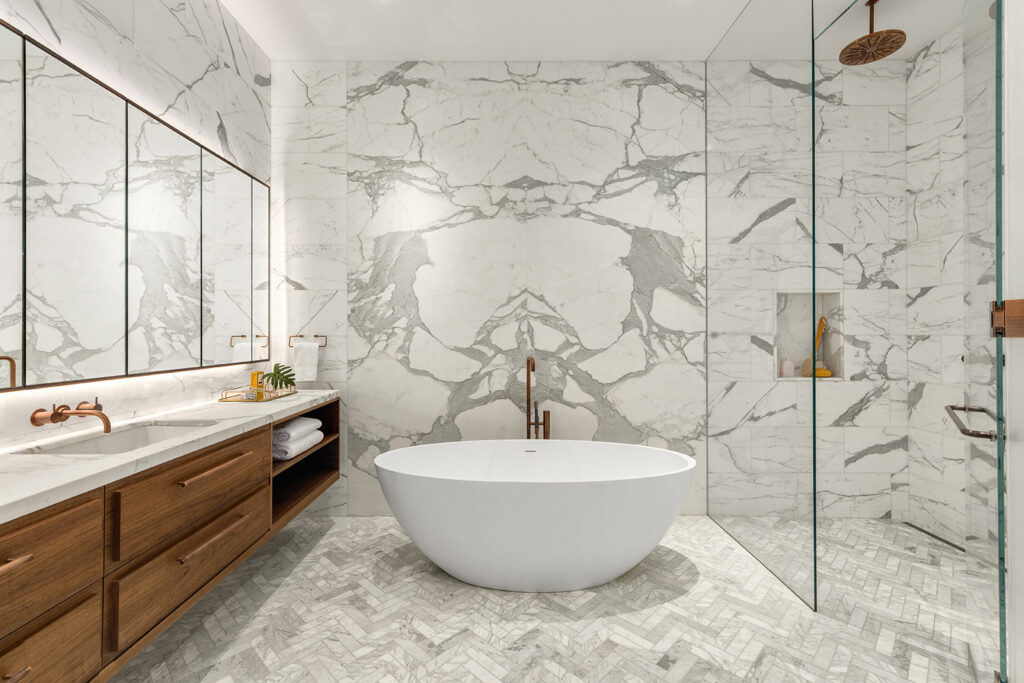
Free material samples and tub templates

Deep bathtubs are designed for full-body immersion, offering greater depth and a more luxurious soaking experience than standard tubs. Perfect
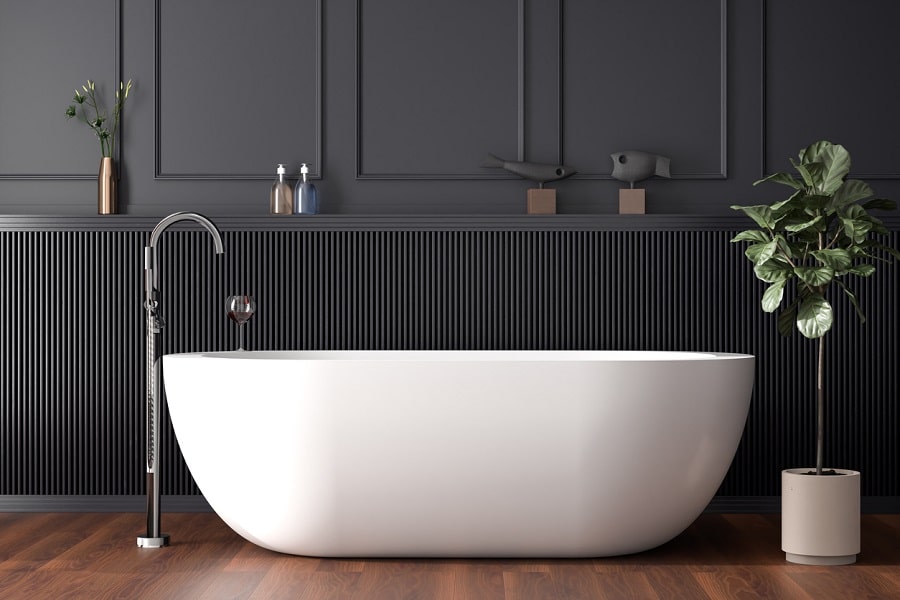
In 2025, bathtubs will be more than functional fixtures—they’ll be bold design statements that define bathroom aesthetics. From timeless white
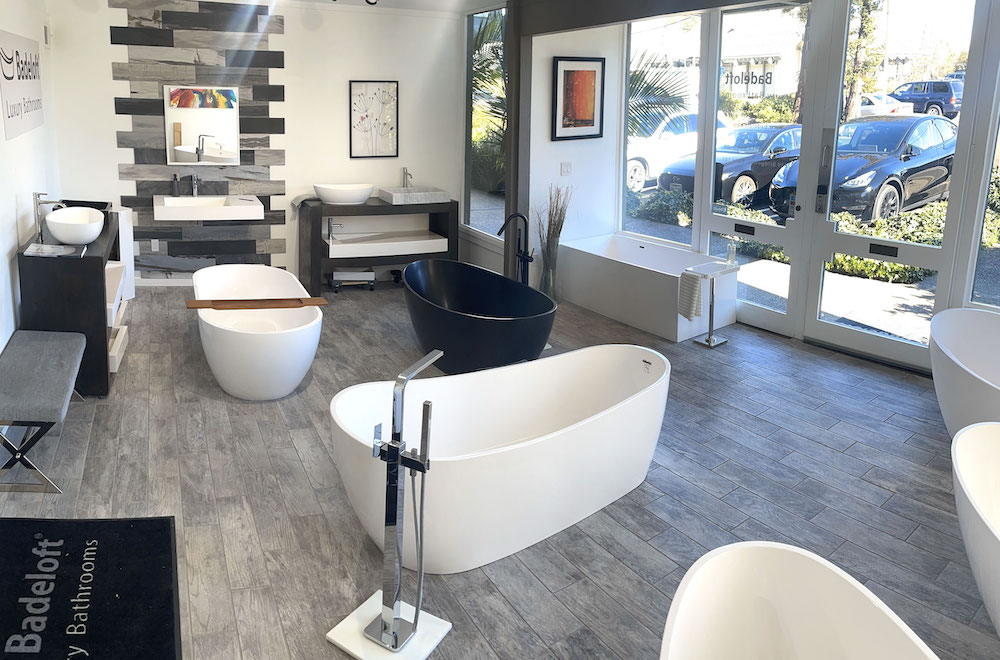
The San Francisco Bay Area is home to a variety of top-rated bathtub shops offering everything from modern, luxury designs
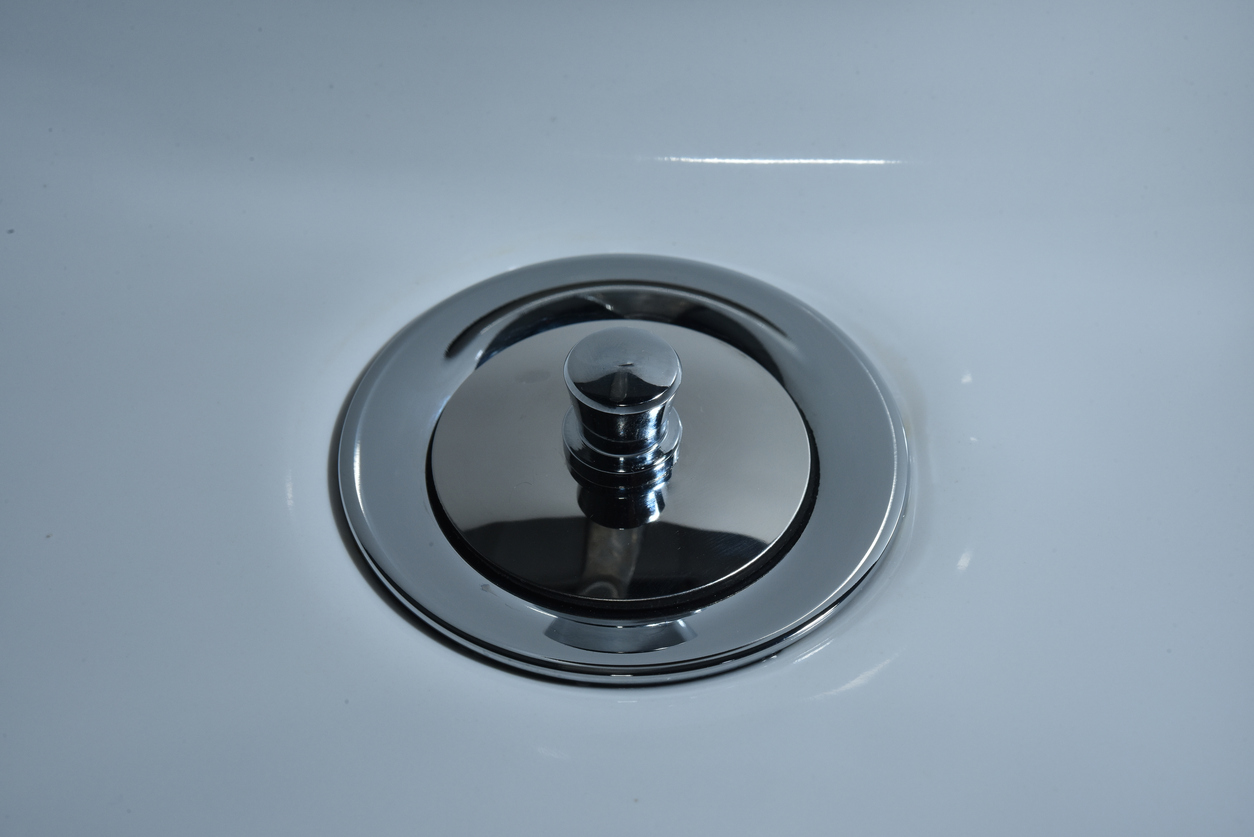
Choosing the right bathtub drain stopper is essential for creating a comfortable and functional bathing experience. With over 20 common
Fill out the form below to request a free material sample
"*" indicates required fields
"*" indicates required fields
"*" indicates required fields